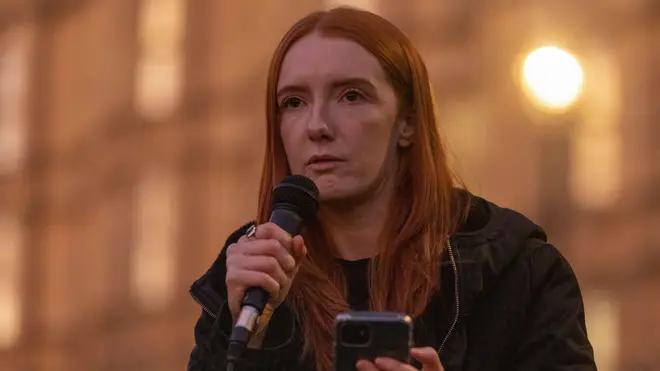
Clive Bull 1am - 4am
3 March 2023, 12:53

Two years ago, after the murder of Sarah Everard and the behaviour of the Met at her vigil, many people listened to the Met Police commissioner at the time – Cressida Dick – promise that the force would tackle violence against women and girls, whilst also looking into sexism among police through an independent review.
That report was done, finding that police had something called "booty patrols" where they would stop "attractive" women to stop and search, also it found whatsapp group chats where serving officers were talking about assaulting their own partners.
That was amongst many damning incidents of misogyny where police officers were abusing their power to assault or perpetuate violence against women.
Cressida Dick resigned and Mark Rowley took over as Commissioner of the Met Police, again promising radical reform and a strategy to tackle violence against women and girls.

Women's rights activist Patsy Stevenson talks about internalised misogyny
One thing that was promised was accountability and the new commissioner has delivered partially by saying there is sexism within the force and that now over 1,000 Met officers are being investigated for allegations of domestic violence and sexual offences.
But this, and the David Carrick case, just shows how often things were reported and let go without consequence in the force.
The Mayor of London now has a team to tackle violence against women and girls. Some of the tactics make sense, for example the "Schools Toolkit" where the mayor has invested £1million into educating school children to recognise and combat sexism.
However, some lack understanding that there are many perpetrators of abuse in the police force.
The Mayor of London supported the Police, Crime, Sentencing and Courts Bill, its worst parts put into the new Public Order Bill that is currently going through the amendments stage in the House of Commons.
One part of the bill states that police will be able to stop and search without suspicion, but police were only found to be abusing this power just last year with their "booty calls".
The contradiction of telling the public the strategies for tackling misogyny whilst giving police even more powers to abuse against women is absurd.
Luckily this part of the bill has been scrapped through public pressure but if the bill goes through, it will be harder to change bills in the future.
The home secretary and other parliamentary officials have stated that they are against violence against women and girls, but it is often just used as a political weapon.
Former home secretary Priti Patel for example said that she was appalled by what happened at the Sarah Everard vigil against women who were arrested, then later changed this to say that the police behaved in appropriate manner after an investigation was completed.
However, the investigation was scrutinised and many of the women arrested that night are now taking legal action against the Met.
Read more: Sarah Everard's killer Wayne Couzens pleads guilty to indecent exposure
The current home secretary Suella Braverman has categorised violence against women and girls as serious as terrorism, with plans for a domestic abuse register.
This register will rely on policing, however, to put offenders on a tag and to monitor them.
To tackle this epidemic of misogyny we first need to fix our police force, because ultimately they are the ones who are going to be enforcing any laws on perpetrators of violence against women and girls and the ones who will investigate these crimes.
However, at the moment, they are being investigated themselves for such crimes. Until a statutory report into misogyny in the Met Police is done and actual reform, stricter vetting and higher consequences for misogynistic behaviour is put in place, women cannot trust the police and therefore cannot feel safe in London.